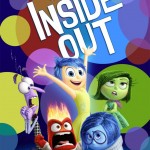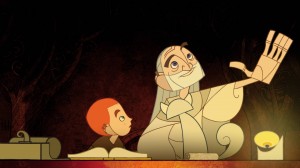a review by Jeffrey Overstreet
•
Magnolia Pictures. Directed by Steven Soderbergh. Starring Sasha Grey, Chris Santos,Peter Zizzo, Glenn Kenny. Written by Brian Koppelman and David Levien. 77 minutes. Rated R (for sexual content, nudity and language).
•
No, I can’t say I found it fun to watch a real porn star (Sasha Grey) dramatize an expensive call-girl’s tedious, humiliating, self-destructive work.
But I can say I found it, um, “revealing” to watch The Girlfriend Experience — Steven Soderbergh’s meditation on the soul-killing effects of capitalism gone wrong.
As Christine, aka “Chelsea”, goes about her work, we observe her chameleonic behavior in a series of encounters and transactions with her male customers. We watch her make ethical compromises until she seems to be a heartless opportunist. But then we begin to catch glimpses of a damaged soul through cracks in that chilly facade. And the movie becomes a harrowing character sketch for the damage that the relentless competition of capitalism can do to the spirit.
I’m not talking about the actress when I say that this may be Soderbergh’s most visually enchanting film. (One of the film’s mysteries, for this viewer anyway, is Chelsea’s appeal. She could be “the girl next door,” made up for a day at the mall, except that her jewelry and clothes are apparently quite expensive.) Chelsea’s world is all about sexy, glamorous surfaces – exteriors that distract from the ordinary, the hollow, and the corrupt – and Soderbergh’s cinematography demonstrates this exquisite colors and graceful lines that illustrate scenes of chilling lifelessness.
Grey is certainly convincing as a woman bored beyond belief by her customers and yet willing to perform whatever function—sexual, therapeutic, or (most importantly) maternal—they desire. And she does it all to achieve… what, exactly? Some kind of success, some kind of fame, some kind of control.
Christine has a boyfriend who wants her companionship and who seems to be fine with the nature of her work. He may even really like her in some way; there’s a gentleness in his way with her, at first, that is almost persuasive. Neverthless, he’s furniture for Chelsea… something to lounge on. She’s very ready to consider other options. This is a shopper’s market after all.
As Chelsea listens—or better, “listens”—to her clients, we’re as bored by the things they tell her as we are slowly horrified by how desperate these apparently wealthy and resourceful men have become for real intimacy. She exists, it is clear, to amplify the very egos that have incapacitated and distorted each customer’s conscience and capacity for love.
But Chelsea isn’t the only character of interest. We also meet a personal trainer, whose “intimate” relationships with his weight-lifting customers exists on a frightfully similar plane, with similarly dishonest and tenuous vocabulary. And so the movie begins to suggest just how every line of work, however sophisticated, can devolve into a form of prostitution.
Accentuating the unnatural emptiness of this world, the scenes in Soderbergh’s film challenge us to consider their chronology. The “narrative arc” is so slight that he might have mixed up the order just to mess with us, or maybe not. It was a flaw in John Hillcoat’s The Road that the film’s scenes could be shuffled like a deck of cards without much of an impact on the audience, here it’s an enhancement of Soderbergh’s apparent thesis that the life of consumerism, episodic and transaction-oriented as it is, merely sustains life without contributing to growth of forward motion. What is Chelsea’s story, anyway?
We come to see a picture of a world in which all relationships are self-centered and exploitative. It’s as desolate as any landscape I’ve ever seen in a film. If I had to place it on a map of movies, it would reside in the neighborhood of Stanley Kubrick’s Eyes Wide Shut, in that it depicts the inevitable outcome of a culture that divorces sex from intimacy. At least post-apocalyptic movies like The Road give us human beings who know love and conscience. This pre-apocalypse film shows that, for some people, the real world has already ended, replaced by something they’ve been fooled into believing is “even better than the real thing.”
And it’s a timely movie. The reality of pending economic collapse is likely to leave these hearts in ruins, which might be the best possible outcome for all involved.












